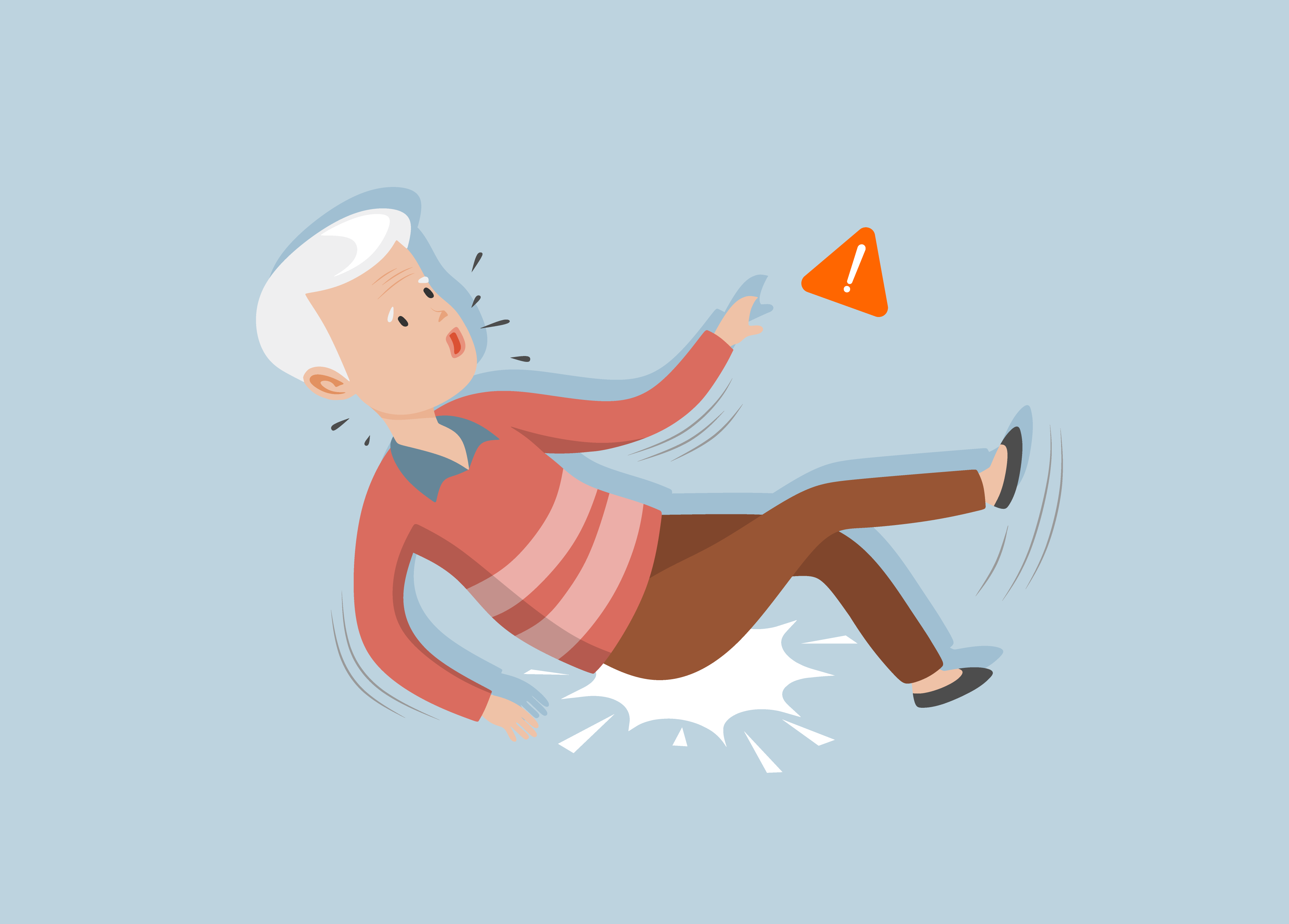More than one in four people age 65 years or older fall each year. The risk of falling and fall-related problems rises with age. However, many falls can be prevented.
A simple accident like tripping on a rug or slipping on a wet floor can change your life. If you fall, you could break a bone, which thousands of older adults experience each year. For older people, a broken bone can also be the start of more serious health problems and lead to long-term disability.
What causes falls
- Reduced eyesight, hearing and reflexes, these may not be as sharp as when you were younger.
- Medical conditions such as diabetes, heart disease, blood pressure, loss of muscle mass, problems with balance and gait are all risk factors for falling.
- Some medications can increase a person’s risk of falling, there can be side effects such as dizziness or confusion.
- Safety hazards in the home or community can also cause falls.
Some steps to prevent falls
- Stay physically active with regular exercise to improve muscle mass, and keep your joints, tendons and ligaments flexible.
- Try balance and strength exercises such as walking, yoga, Tai Chi or chair exercises.
- Fall proof your home – make sure walkways are clear of clutter, hold onto handrails, keep electrical cords away from walking paths, keep a flashlight next to the bed, clean up spills immediately.
- Have your eyes and hearing checked regularly. Talk to you doctor about any side effects of any medications you are taking.
- Always go from sitting to standing slowly and make sure you are using the right aids such as a 4ww or walking stick that is right for you.
We connect, we support, we care
Our complimentary service works in partnership with you to identify your health and wellbeing needs and connects you to a diverse range of services to support your lifestyle.
Our team is only a call away on 1800 797 625 or via email at [email protected]

0 Comments